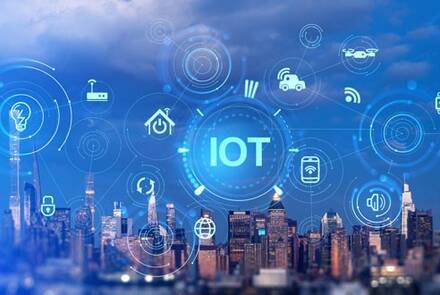The 5G Revolution in Smart Cities and IoT
In the ever-evolving landscape of urban development, the rollout of 5G networks is catalyzing a transformative shift, particularly in the adoption of Internet of Things (IoT) technologies. Smart cities, characterized by intelligent infrastructure and connected ecosystems, are poised to reap unprecedented benefits from the enhanced connectivity offered by 5G. This blog post delves into how the deployment of 5G networks is accelerating the adoption of IoT technologies and reshaping the connectivity landscape in smart cities.
- Unleashing the Power of Speed
At the heart of the 5G revolution is the remarkable leap in data transfer speeds. Compared to its predecessor, 4G, 5G offers exponentially faster data rates, reducing latency to milliseconds. This high-speed, low-latency connectivity is a game-changer for IoT applications in smart cities, enabling real-time data exchange and fostering a more responsive and seamless urban experience. - IoT Proliferation Across Sectors
The enhanced capabilities of 5G networks are unlocking new possibilities for IoT deployment across various sectors within smart cities. From transportation and healthcare to energy and public safety, the rapid and reliable connectivity provided by 5G enables a proliferation of IoT devices and sensors. This widespread adoption contributes to a more interconnected and data-driven urban environment. - Revolutionizing Transportation and Traffic Management
In the realm of urban mobility, 5G facilitates the implementation of smart transportation solutions. Connected vehicles, traffic lights, and sensors on roadways leverage the high-speed connectivity to communicate seamlessly. This enables real-time traffic monitoring, dynamic route optimization, and improved overall traffic management. The result is reduced congestion, shorter commute times, and enhanced efficiency in urban transportation systems. - Advancing Healthcare Services
The healthcare sector in smart cities benefits immensely from the high-speed and low-latency connectivity of 5G. Telemedicine and remote patient monitoring, powered by IoT devices, become more efficient and reliable. Healthcare professionals can access real-time patient data, conduct remote consultations, and make informed decisions promptly. This not only enhances healthcare delivery but also contributes to more accessible and personalized medical services. - Enabling Smart Grids for Energy Efficiency
The integration of 5G with IoT extends to the energy sector, particularly in the development of smart grids. These intelligent energy distribution networks leverage real-time data from sensors and devices to optimize energy consumption, detect faults, and enhance overall grid resilience. The result is a more efficient and sustainable energy infrastructure, aligning with the goals of smart and eco-friendly urban development. - Enhancing Public Safety and Security
5G networks play a pivotal role in enhancing public safety and security within smart cities. High-resolution video surveillance, facial recognition, and advanced analytics are made possible by the increased bandwidth and low latency of 5G. This enables quicker response times, more accurate threat detection, and an overall improvement in the effectiveness of public safety measures. - Fostering Innovation and Smart City Solutions
The rollout of 5G networks acts as a catalyst for innovation within the IoT ecosystem. Startups, tech companies, and municipalities collaborate to develop and implement cutting-edge solutions that leverage the enhanced connectivity of 5G. From smart buildings and waste management to urban agriculture and water conservation, the possibilities for innovation are limitless in the 5G-powered smart city landscape.
Challenges and Future Prospects
While the prospects of 5G in smart cities and IoT are promising, challenges such as infrastructure deployment, spectrum management, and data privacy must be addressed. As the rollout of 5G continues, collaboration between stakeholders, including governments, service providers, and technology developers, becomes crucial to navigating these challenges and realizing the full potential of 5G-enabled smart cities.
The synergy between 5G networks and IoT technologies is unlocking new dimensions in the evolution of smart cities (See also: Trends in Smart Cities and IoT for 2024). As the connectivity landscape undergoes a paradigm shift, urban environments are becoming more responsive, efficient, and interconnected than ever before. The journey toward a fully realized smart city, where data-driven solutions enhance the quality of life for residents, is propelled by the transformative power of 5G. In this era of accelerated connectivity, the future is not just connected—it's intelligent, responsive, and poised for a wave of innovation that will redefine the urban experience for generations to come.
For more information about Trigyn’s Smart City & IoT Solutions, Contact Us.






